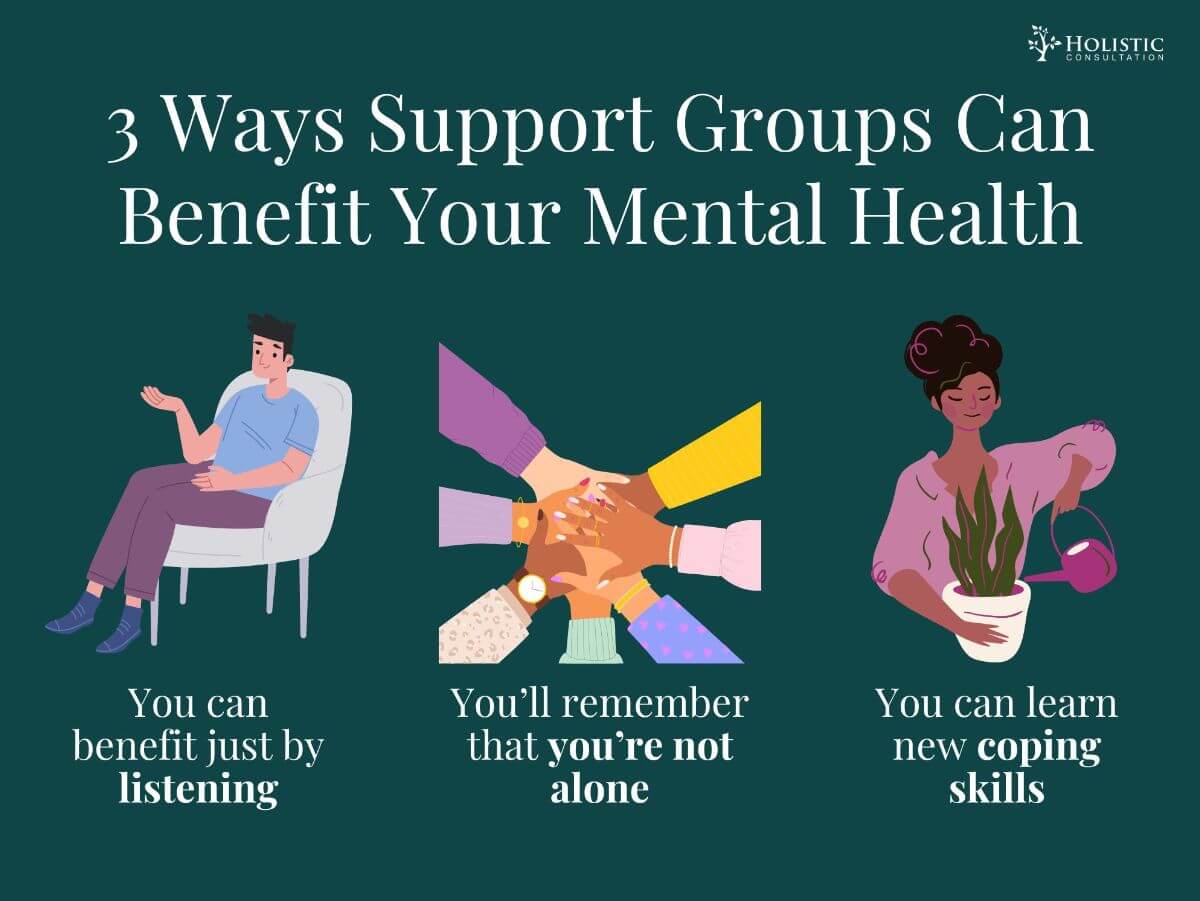Little Known Facts About Mental Health Counseling.
Little Known Facts About Mental Health Counseling.
Blog Article
Some Ideas on Mental Health Counseling You Should Know
Table of ContentsExcitement About Mental Health CounselingMental Health Counseling Can Be Fun For AnyoneThe 10-Second Trick For Mental Health CounselingThe 30-Second Trick For Mental Health Counseling10 Easy Facts About Mental Health Counseling Shown
With treatment, you can obtain understanding right into your very own patterns of behavior and interaction, which can cause even more meeting and pleasing partnerships with close friends, family, and romantic companions. What we assume, we manifest. If you're taken in with adverse emotions and adverse ideas that are disrupting your life, therapy can help., or there are various other adverse ways you act. Therapy can help you alter those actions that are having an adverse influence on your world and partnerships.

The significance of treatment goes past your psychological wellness. Getting therapy to deal with certain aspects of your life can assist you be extra effective in other locations, consisting of work. Some study has actually even revealed that there's a direct connection in between looking for mental health and wellness assistance and a reduction in missed work.

About Mental Health Counseling
You can see a specialist when things are going actually well in your life, or when you're about to experience a huge life shift." Talkspace therapist Kate Rosenblatt, MA, LPC, LMHC. Yet there are much more advantages of treatment than simply the ones we have actually gone over. Treatment can educate you how to manage separation, take care of pain, or build relationships (romantic or those with family members or friends) in a healthy and balanced way.
For the objective of the present study, perceived benefits and obstacles to psychological health and wellness help-seeking are being checked out. Previous study discovered that viewed barriers have a significant impact on university pupils' wellness behavior options (Von Ah, Ebert, Ngamvitroj, Park & Kang, 2003). Perceived advantages and obstacles to help-seeking were specifically picked because of their influence on decision-making and inevitably action (Glanz, Rimer, & Su, 2005).
The existing research study looks for to check out whether or not preconception acts as an obstacle to therapy amongst university student. Eisenberg et al. (2011) proposed that hesitation concerning therapy efficiency is an additional obstacle to taking part in therapy. Research findings disclosed that university student recommended several barriers to taking part in therapy. Mental Health Counseling. Among these were: (1) favoring to deal with psychological illness themselves, (2) not having sufficient time to join therapy, (3) concerns regarding whether psychological health therapy works in remediating troubles, (4) an idea that stress is normal or the problem will improve without treatment, (5) absence of cash, and (6) fret about what others would certainly think if they learnt about therapy involvement.
(2006) reported comparable variables as barriers to seeking therapy and also found that a skepticism of carriers may restrain students from seeking assistance. Staff in campus psychological university hospital might be viewed as hostile, and long wait times for services may be "repulsive" for pupils. Elements promoting more favorable perspectives are commonly at the contrary post of those factors determined as obstacles.
An Unbiased View of Mental Health Counseling
One in three (34.6%) reported residing on campus and one in 4 (23.3%) reported dealing with parents. Almost half of students were associated with campus organizations important source and 1 in 10 reported remaining in a fraternity or sorority. Greater than one-third of students (38.1%) reported that they had a member of the family or friend with a diagnosed mental health disorder.

Unknown Facts About Mental Health Counseling
Univariate F-tests recognized details subscale items that considerably differed. Females were much less likely than men to view individuals that most likely to therapy as emotionally weak, people that most likely to therapy as crazy, to feel that individuals with mental wellness issues need to manage issues on their own, that people that most likely to therapy as not able to resolve troubles, that people who most likely to counseling slouch, and to feel that individuals who most likely to counseling are various from typical people in an adverse means.
Similarly, research results revealed that women were dramatically much less most likely than men to hold stigma-related mindsets. This follows previous research which likewise discovered that men hold higher degrees of viewed stigma than females (Chandra & Minkovitz, 2006). Based upon research study findings, it is obvious that men may be less likely than ladies to look for treatment because of low viewed barriers in addition to my site high stigma-related mindsets.
Examine This Report on Mental Health Counseling
Additionally, university wellness professionals might provide instructional programs targeting men with details on the advantages of mental health therapy and the relevance of looking for help when required. All approaches must be reviewed with future research to establish the impact on college students, particularly men. In contrast to basic populace researches which reveal that ladies are more probable to seek out mental health solutions compared to males (Haunstein et al., 2006; Mackenzie, Gekoski, & Knox, 2006), today research found no considerable distinctions in the number of regarded barriers to help-seeking habits based on sex.
This finding was unexpected and might highlight that those who had gotten counseling had a much better idea of wait times and website here other "access" barriers that may make it hard to begin treatment. Maybe, individuals that have received counseling view extra barriers than participants that have not received therapy considering that seeking counseling services once more might involve worry of self-disclosing personal details to a new counselor.
Report this page